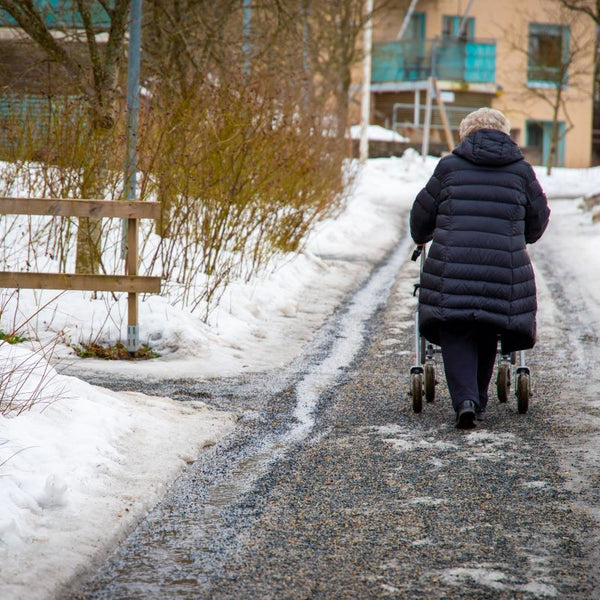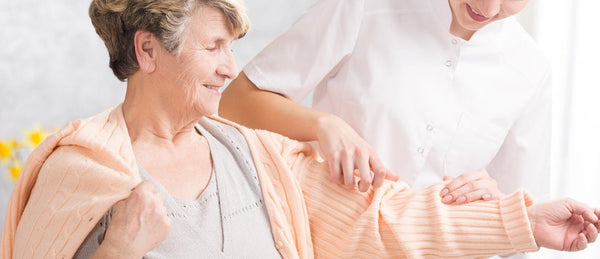Worried about leaving vulnerable elderly parents while you head off on holiday? We spoke to Age Space who provided 5 tips to help reassure you of their safety when you go away.
As holidays start to become a reality again and we all think about joining the rush to the airport or onto the motorway, lots of family carers are understandably nervous about leaving their elderly relatives at home for the first time.
If you are the primary carer for an elderly relative, or your parents have relied on you over the past year, it may feel particularly worrying to be going away, even for a short period of time. Fear not.
There are plenty of ways that can help give you peace of mind that no matter where you are, you can feel confident that they are okay, or that they can easily contact you or someone close by if needed.
Which option is right for you will be especially influenced by how independent your parents are and if they have any specialised needs or requirements, dementia, for example.
1. Give everyone a holiday - find respite care
If you provide your relative with personal or nursing care you will need to replace it by either hiring someone to visit and provide respite care, or by organising a stay at a care home.
- Respite care can be quite hard to find at short notice, especially if your elderly relative has specific needs, so we recommend that you start looking as soon as you know when you’re going on holiday.
- You may even need to work around the availability of respite care.
- Start by contacting local care homes. If you or your relative receives funding support for their care, then you should be able to arrange respite care that is paid for while you are away. In this instance, the local authority should help with securing a bed in a local care home.
If you or parent are funding your own care, then you will be responsible for organising the stay at a local care home. We suggest that you try and create a shortlist of possible homes so that you have a choice.
2. Make a holiday care plan to deal with your worries and guilt
It’s the day-to-day stuff we usually worry about, just knowing our relatives are okay. This can mean checking that they picked up their pills, or got to their doctor’s appointment. Then making sure they have enough food, and that the breakfast bowls aren’t still in the sink.
- Simply asking other family members to make more phone calls can be a big help. You could ask a neighbour or the cleaner to drop in a bit more often.
- Before you zip up your suitcase, double-check that your arrangements are in place. It will help you deal with any doubts and fears you may still have.
- It’s also worth taking five minutes to programme any contact details from home into your mobile phone.

Remember that everyone deserves a holiday. We all need a break to recharge and catch up on some rest. That’s not being selfish. It’s about being the best version of ourselves for the people close to us.
3. Finding extra home help for your elderly parents
If your parent or relative can stay at home (with a bit of extra help and company) whilst you’re away, then time to get the spreadsheet out and work out who can do what and when.
- Perhaps they have part-time care already, and the carer may be able to spend more time with them?
- Or maybe a relative could step in while you’re away? If you have siblings or other close family who do not live close to your parents, this is an opportunity to share the caring responsibilities.
- Talk in advance with your family; they may feel guilty they cannot play a more active role in the day-to-day care but you cannot expect them to drop everything to fit around you holiday plans.
You could supplement people help with some tech support – with a home monitoring service, or emergency alarm for the elderly.
4. Tech to the rescue
There is plenty of tech in use now as a central part in the support and care for elderly parents and relatives.
There are options that can help reassure you of your parents’ safety short term, while you’re away, but also longer term to allow someone to live independently, without feeling like they’re being watched or babied.

Personal alarms
- The first option are personal alarms.
- In their simplest forms personal alarms are wearable SOS buttons that, when pressed, alert a 24/7-available monitoring team who will then check in and make sure everything is okay, or organise help.
- You can also now get personal alarms with a range of additional useful features such as GPS tracking, automatic fall detection and more.
5. Practical solutions for peace mind
For all of these “staycation” options there are also a few practical things that you might want to consider to give everyone peace of mind:
- If possible, arrange a time of day to just check in on the phone. It can be a quick ‘weather update’ or a ‘what’s on the menu today’ chat, but you’ll know they’re safe every 24 hours.
- You might even want to consider video calling as there are devices out there that can help make the process a little easier for older people – you can find a list of devices that might be suitable on our guide - Video Calling for the Elderly.
Be sure to make a list of people and numbers to call who can pop by if on the occasion your parent doesn’t answer the phone:
- Consider a key safe to enable them to have access to their home easily, should they need to.
- Ask a neighbour to just check that for example the downstairs curtains are open in the day and that the milk has been taken in – or whatever an equivalent routine might be.
- This way your parents or relatives won’t feel that you’re actually checking up on them.
Enjoy your holiday...Before you zip up your suitcase, double-check that your arrangements are in place.
It will help you deal with any doubts and fears you may still have. It’s also worth taking five minutes to programme any contact details from home into your mobile phone.
The easier you make it to deal with any problems remotely, the better. When that’s done, you can relax.
Just don’t forget your toothbrush...
Some more suggestions to help you enjoy your holiday
Dog walkers, cleaners, gardeners can also play an important role at ensuring your parents are safe while you’re away.
It can be a good idea to encourage someone to pop by every day – just in case your parent decides to prune that tree at the bottom of the garden one afternoon and takes a tumble whilst not wearing their alarm.
If your parent usually has help cooking for themselves but other than that is fairly independent, setting them up with a meal delivery service might be a good idea. It is great way to get them supplied with hot, nutritious meals daily while also making sure someone who is used to spotting signs of trouble in older people checks in on them daily.
It is so much easier to put all this in place before you carry your suitcase to the car! Have a wonderful holiday.
You deserve it.




